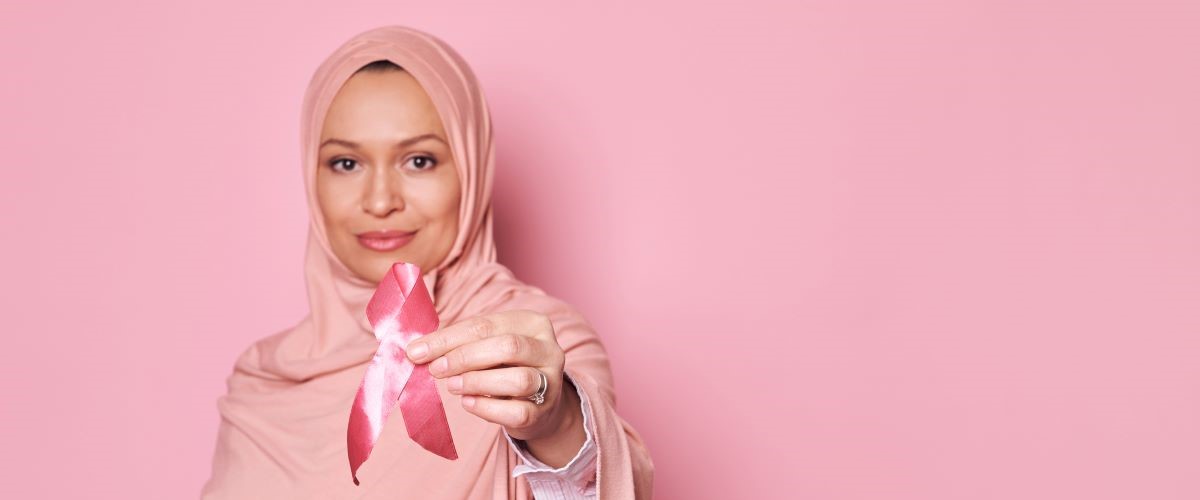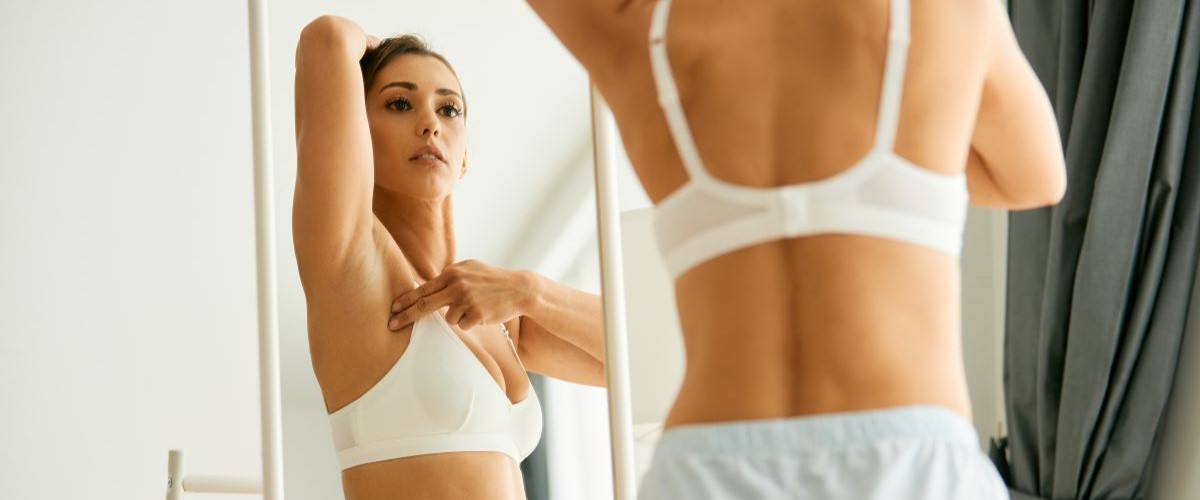‘Know your normal’: How to check yourself for breast cancer
Knowing your body is key to an early breast cancer diagnosis. Here's how to check your breasts (and pecs) for lumps and swelling

Breast cancer is the most common cancer among females in the UK, with one woman diagnosed every 10 minutes. This means it accounts for 30% of all cancer among women.
Even though the number is significantly less, men are not immune to the disease. One man in the UK receives a breast cancer diagnosis every day.
More worryingly, research shows that 41% of women said they do not regularly check their breasts, with 42% citing the main reason is forgetting to do so.
Almost 20% added they do not check their breasts due to lack of confidence, while 31% said they are not in the habit of the recommended monthly checks.
But getting to know your normal is crucial to an early diagnosis, so that both men and women can recognise a lump or if any change has occurred. Knowing what to do, therefore, is critical.
Don’t neglect, check
Findings show that dissatisfaction with our bodies can put people off self-examination. So, it’s really important not to be hyper-critical of yourself and feel comfortable with what you are doing.
“Some people find it easier to feel for any breast changes whilst having a shower [or bath] with a soapy hand,” explains Dr Roshane Mohidin, Vitality’s Head of Health Improvement and NHS GP.
If you feel more comfortable with visually checking your breasts, you can always look in the mirror to see if there are any noticeable changes in the size, shape, skin texture and nipple area, which can also be signs of breast cancer.

Online tools are also available to help educate consumers on how to check for cancer. Know Your Lemons, is an early detection app that provides creative and inclusive ways to look for changes in the breast.
Classes are run by trained volunteer educators, which are available in 30 languages, too. Whichever way you choose to self-examine, make sure to cover the whole breast area, from the armpits up to the collarbone.
You are looking for lumps, thickenings, or changes in feeling of your breast such as dimpling or puckering (similar to the skin of an orange). Some other signs to keep an eye out for are:
- A rash, redness or soreness, the breast may feel heavy
- Liquid (not milky) leaking from the nipple
- Any discomfort or pain in one breast or in your armpit that doesn’t go away
- Swelling in your armpit or around your collarbone.
To support early detection of cancer, Vitality members with a qualifying health insurance plan can access a cancer risk assessment through our partner Check4Cancer, which can identify if you are at higher risk of five common cancers – bowel, breast, cervical, prostate and skin cancers.
All this involves is filling out a questionnaire to enable you to understand your potential risk and help direct you to the appropriate screening. Vitality members with a qualifying health plan can arrange a call back from our team if you have noticed any changes to your breasts.
This can be done through Care Hub and you don’t need a referral to access this care. If you'd like to know more about services available through your plan, visit Member Zone or Care Hub to find out more.
Dealing with a diagnosis
Being diagnosed with cancer at any age is never easy to hear. Vitality data shows that one third of women diagnosed with breast cancer are under the age of 50 [1]. Alice was 43 years’ old when she was given her diagnosis just before Christmas, 2021.
“Being diagnosed with cancer turns your life up-side-down. In a day everything changed,” she tells Vitality Magazine. “It makes you anxious, scared and confused. You need to make important decisions regarding treatment, work, and other life commitments quickly.”
Alice went through chemotherapy, two operations and radiotherapy before moving onto hormone therapy as her last form of treatment. As a Vitality member, Alice also had access to an oncology care consultant, Susi, from the day of her diagnosis.
“Susi has been supporting and advising me every step of the way. Having someone who knows your circumstances makes a big difference as you don’t need to explain and relive your situation to different people at different times,” says Alice.
Prevention is best
When it comes to cancer, there are no guarantees. But there are a variety of behavioural and lifestyle changes we can make that reduce the risk of a diagnosis.
Improve your nutrition
Eating a healthy, balanced diet has a positive impact on cancer risk and is recommended by professionals. It has been found to help prevent a wide range of health conditions, such as heart disease, diabetes and different cancers.
Meanwhile, 8% of breast cancer cases are caused by drinking alcohol in the UK, according to Cancer Research UK (CRUK). And switching to no or low alcoholic drinks is easier than you think.
Get physical
Adapting to a regular physical activity routine is incredibly beneficial for our immune system and hormones. By increasing your physical activity, it decreases levels of oestrogen and insulin, the two hormones that encourage breast cells to divide, which can lead to cancer.
Being physically active can also build resilience for undergoing treatment. Vitality data shows a person’s level of physical activity correlates to their survival rate after diagnosis[1].
Active Vitality members were found to improve their chance of breast cancer survival by 48% in the following seven years after diagnosis[2].
Maintaining a healthy weight
Like alcohol intake, research from CRUK shows that 8% of breast cancer cases in the UK are caused by overweight and obesity. Keeping your body at a healthy weight has shown to reduce the risk of being diagnosed with breast cancer, particularly after going through the menopause.
By regularly checking your BMI (Body Mass Index) this will let you know if you’re at a good weight for your body.
If you are a Vitality member, you can complete a health review to better understand your health and find out what positive lifestyle changes you can make.
At Vitality, we know that a cancer diagnosis can be incredibly hard on you and your family. That’s why we offer our health insurance members a range of added support with our Advanced Cancer Cover.
Through Vitality, you could get access to a physiotherapist, dietician, psychologist or a clinical nurse specialist, as well as other professionals, to help you through your diagnosis and recovery.
If you are worried about a cancer diagnosis and want to find out more, visit our Guide to Cancer Diagnosis and Treatment here.
[1] Vitality data collated from claims research 2023
[2] Vitality data 2022
[3] Vitality research into Vitality Programme data 2022
As a Vitality member, when you create a Health Profile you’ll receive personalised recommendations on how to improve your health.
Just register on the Vitality Member app today to complete yours.
Recent articles

Feeling lonely? 4 ways to combat loneliness this season
For all the fun and frolics of the festive season, for many it can bring an equal amount of heartache. So, why not lift your - or someone else’s - spirits this time of year with these simple tips?

The way to avoid festive burnout? Just say ‘no’
For all of its fun, the festive period can be incredibly stressful too. Hoping to escape burnout this holiday season? Try saying ‘no’, writes Jennifer Wallis

What’s holding women back from getting active this winter?
Less than one in four women hit the recommended weekly exercise guidance – why? We asked women’s personal trainer and founder of LDN MUMS FITNESS, Sarah Campus

